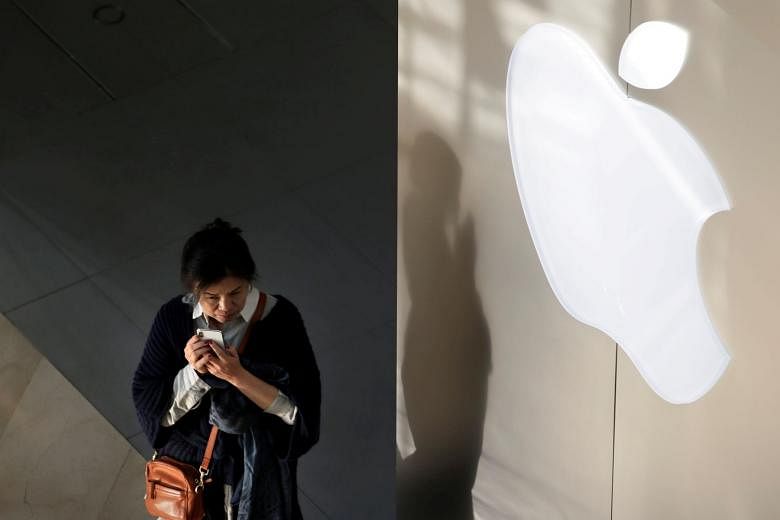SAN DIEGO (REUTERS) - Mobile phone chip supplier Qualcomm on Friday (March 15) won a legal victory against iPhone maker Apple, with a jury in federal court in San Diego finding that Apple owes Qualcomm about US$31 million (S$43 million) for infringing three of its patents.
Qualcomm last year sued Apple alleging it had violated patents related to helping mobile phones get better battery life.
During an eight-day jury trial, Qualcomm asked the jury to award it unpaid patent royalties of up to US$1.41 per iPhone that violated the patents.
"The technologies invented by Qualcomm and others are what made it possible for Apple to enter the market and become so successful so quickly," Don Rosenberg, Qualcomm's general counsel, said in a statement.
"We are gratified that courts all over the world are rejecting Apple's strategy of refusing to pay for the use of our IP."
Apple did not immediately respond to a request for comment.
The case is part of a series of lawsuits around the world between the companies. Apple has alleged that Qualcomm engaged in illegal patent practices to protect a dominant position in the chip market, and Qualcomm has accused Apple of using its technology without compensation.
To date, Qualcomm has won sales bans on iPhones in Germany and China, though the Chinese ban has not been enforced and Apple has taken moves it believes allow it to resume sales in Germany.
Qualcomm also suffered a setback with US trade regulators who found that some iPhones infringed one of Qualcomm's patents but declined to bar their importation into the United States, citing the damage such a move would inflict on Qualcomm competitor Intel Corp.
The companies' legal battle will reach a crescendo in April, when an antitrust case filed by Apple in early 2017 heads to trial and challenges the foundation of Qualcomm's business model of licensing its patents to mobile device makers and selling them chips.
The highly technical San Diego case had an unexpected turn last week when a former Apple engineer who was set to testify that he had come up with a key idea for one of Qualcomm's patents briefly reversed course and said he would not take the stand.
The engineer changed his mind again and did testify. But he stopped short of saying he felt he should have been named an inventor on the patent and he did not have documents to show precisely when he came up with the idea.

